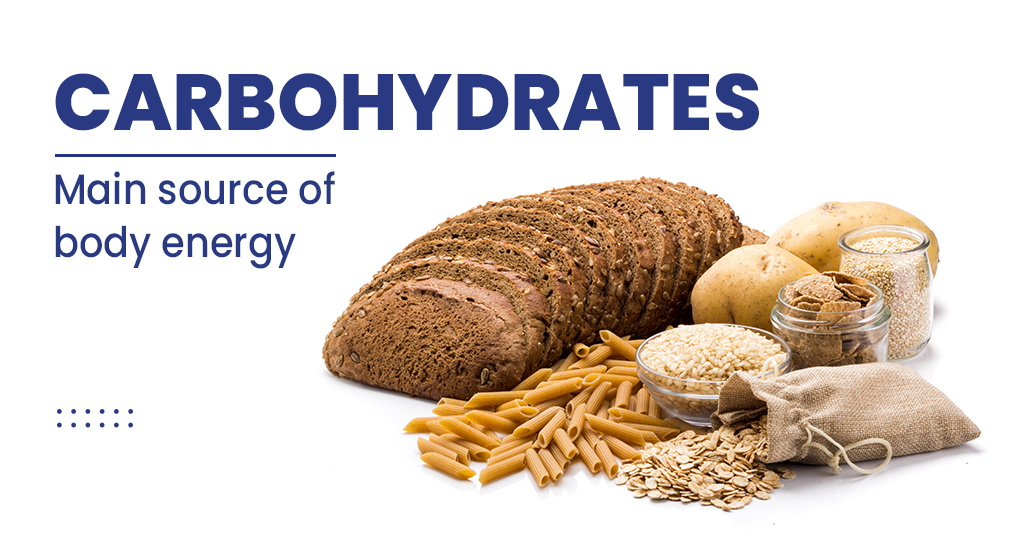The Benefits of Carbohydrates – A Comprehensive Guide
In this article, we will explore the numerous benefits of carbohydrates and why they are an essential part of a healthy diet. Carbohydrates are one of the three macronutrients that provide energy to our body, alongside proteins and fats. Despite the misconceptions surrounding carbohydrates, they play a crucial role in maintaining overall health and well-being.
The Role of Carbohydrates in Energy Production
Carbohydrates are the primary source of energy for our body. When consumed, they are broken down into glucose, which is then converted into ATP (adenosine triphosphate) – the fuel that powers our cells. This energy is vital for various bodily functions, including physical activity, brain function, and internal organ processes.
Carbohydrates and Brain Function
The brain heavily relies on carbohydrates to function optimally. Glucose, derived from carbohydrates, is the preferred energy source for the brain. It fuels cognitive processes, enhances memory, and improves concentration. Including carbohydrates in your diet can help you stay mentally alert and focused throughout the day.
Carbohydrates and Physical Performance
Carbohydrates are essential for athletes and individuals engaging in regular physical activity. They provide readily available energy, allowing for improved endurance and performance. Glycogen, the stored form of glucose, is utilized by muscles during exercise, enhancing strength and stamina. Including carbohydrates in your pre and post-workout meals can aid in muscle recovery and replenish glycogen stores.
The Importance of Fiber in Carbohydrates
Carbohydrates are not just about providing energy; they also play a crucial role in maintaining digestive health. Fiber, a type of carbohydrate, is indigestible and passes through the digestive system relatively intact. It adds bulk to the stool, preventing constipation, and promotes regular bowel movements. A diet rich in fiber has been linked to a reduced risk of various digestive disorders, including diverticulitis and colorectal cancer.
Carbohydrates and Weight Management
Contrary to popular belief, carbohydrates can be part of a healthy weight management plan. Complex carbohydrates, such as whole grains, legumes, and vegetables, provide essential nutrients and a feeling of fullness, reducing the likelihood of overeating. They also have a lower calorie density compared to fats, making them a great choice for those aiming to lose weight or maintain a healthy weight.
Choosing the Right Carbohydrates
Not all carbohydrates are created equal. It is important to focus on consuming complex carbohydrates, which are rich in fiber, vitamins, and minerals, while limiting simple carbohydrates, which are often found in processed foods and sugary beverages. Opt for whole grains, fruits, vegetables, and legumes to ensure a well-rounded and nutritious carbohydrate intake.
The Bottom Line
Carbohydrates are an essential part of a balanced diet and provide numerous benefits for overall health. They are the primary source of energy for our body, support brain function, enhance physical performance, and aid in weight management. By choosing the right carbohydrates and incorporating them into our meals, we can enjoy the advantages they offer while maintaining a healthy lifestyle.

Frequently Asked Questions about the Benefits of Carbohydrates
1. What are carbohydrates?
Carbohydrates are one of the three macronutrients found in food, along with proteins and fats. They are molecules made up of carbon, hydrogen, and oxygen.
2. What are the main benefits of carbohydrates?
Carbohydrates provide energy for our bodies, support brain function, aid in digestion, and help maintain a healthy weight.
3. Are all carbohydrates bad for you?
No, not all carbohydrates are bad for you. It’s important to choose complex carbohydrates like whole grains, fruits, and vegetables, which provide essential nutrients and fiber.
4. How do carbohydrates provide energy?
When we consume carbohydrates, our bodies break them down into glucose, which is then used as fuel for our cells. This energy is essential for various bodily functions.
5. Can carbohydrates help with weight management?
Yes, carbohydrates can help with weight management. Choosing complex carbohydrates that are high in fiber can make you feel fuller for longer, reducing the chances of overeating.
6. Are carbohydrates important for athletes and active individuals?
Absolutely! Carbohydrates are a crucial source of energy for athletes and active individuals. They provide the fuel needed for intense physical activity and aid in muscle recovery.
7. Do carbohydrates affect brain function?
Yes, carbohydrates play a significant role in brain function. Glucose, derived from carbohydrates, is the primary source of energy for the brain, helping to enhance cognitive performance.
8. Can carbohydrates be part of a healthy diet?
Absolutely! Carbohydrates should be a part of a healthy, balanced diet. It’s important to choose whole grains, fruits, vegetables, and legumes as sources of carbohydrates.
9. Are there any health risks associated with carbohydrates?
While carbohydrates are generally beneficial, consuming excessive amounts of refined carbohydrates, such as sugary snacks and drinks, can lead to weight gain, diabetes, and other health issues.
10. Should I eliminate carbohydrates from my diet?
No, it is not necessary to eliminate carbohydrates from your diet. Instead, focus on choosing healthy, nutrient-dense sources of carbohydrates and consuming them in moderation.




